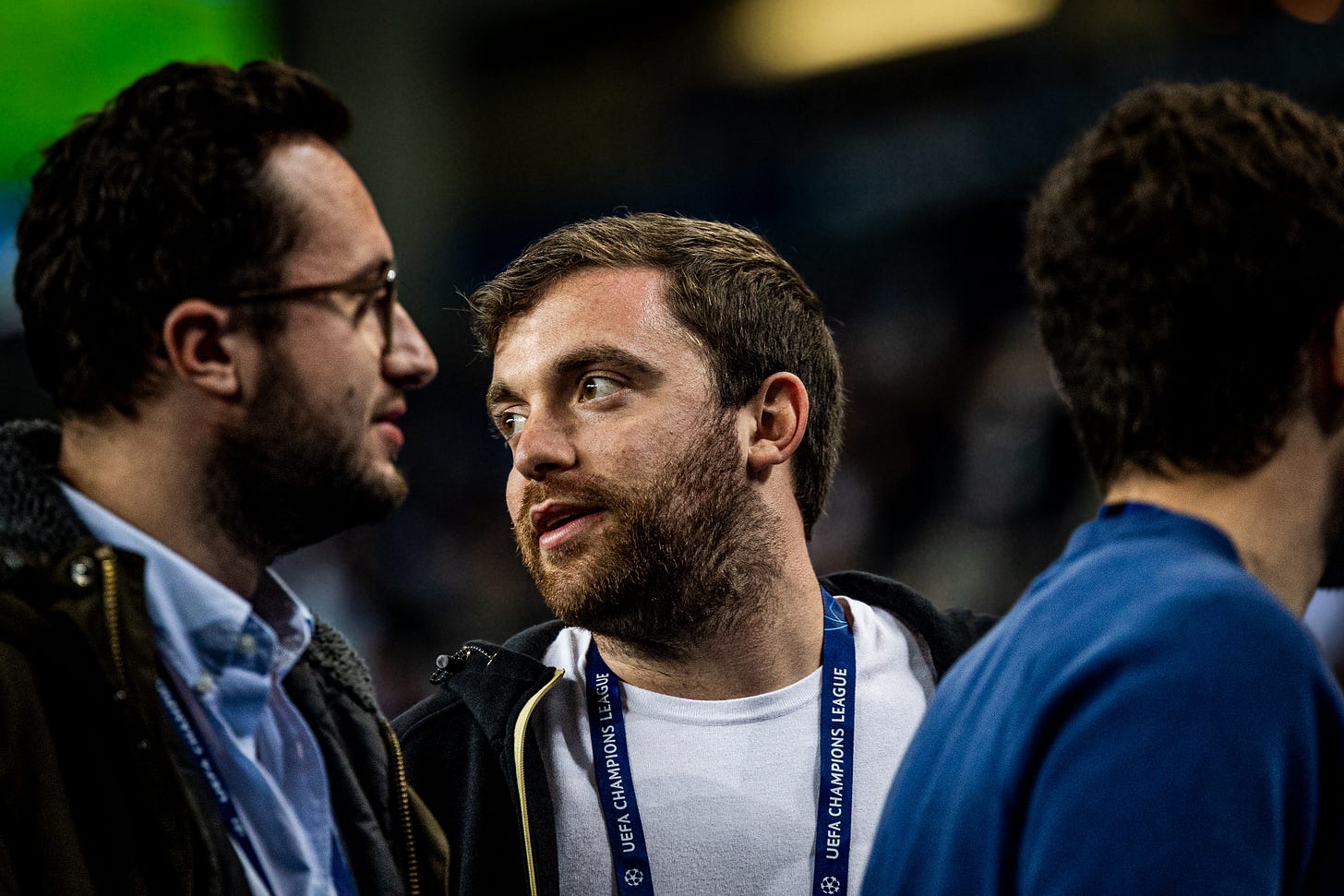“Here we go”
The Gatekeepers - transfer insiders and the networked power of 21st century football
“Here we go.”
With three words, a transfer moves from rumour to reality, but not because a club has confirmed it or a manager has said so.
But because Fabrizio has.
We live in an age of the transfer gatekeeper.
The most influential figures in football’s global media ecosystem are no longer broadcasters, editors or club spokespeople.
They are the digital insiders, embedded, agile, and absurdly well-connected.
People like Fabrizio Romano, David Ornstein, and Gianluca Di Marzio do not just report the game, they structure it.
These individuals have become more than journalists.
They are informational nodes in the network of modern football, actors whose visibility, access and symbolic capital now shape how we understand the sport.
In a moment when global football is increasingly decentralised, digitised and financialised, it is worth asking: what does it mean that football's most trusted voices are unaffiliated, brand-driven, and network-powered?
The Transfer as Spectacle
Transfers were once administrative formalities. Announcements made on Ceefax, deals done behind closed doors.
Today, a player’s movement from Porto to Brighton is a three-act drama: leaked whispers, insider updates, the eventual “here we go” — followed by ten variations of confirmation.
This is football as narrative economy.
The deal has become a content product in its own right.
Fans follow not just the outcome, but the arc, tuned into developments hour by hour, watching the movements of agents, medical staff and airport security.
In this new reality, transfer insiders are not background figures.
They are frontline narrators of the global game.
Millions follow their updates religiously. Clubs, agents and broadcasters rely on their reach.
Networks Over Institutions
Why does this matter?
Because it marks a shift in football’s information power structure, away from officialdom, and toward networked intermediaries.
Using Social Network Analysis (SNA), we might describe these insiders as possessing high betweenness centrality.
They connect otherwise separate domains: clubs, agents, players, media outlets.
They are not the centre of the network, but the bridge between disconnected groups. This gives them:
Access to exclusives
Control over timing
Informal influence on perception
In SNA terms, they also benefit from what Ron Burt calls structural holes, unfilled spaces in the network that they occupy as brokers.
They are neither bound to institutions nor fully outside them. Their power lies in their in between position.
Globalisation, Flattened Distance, and the Voice of the Node
Fabrizio tweets in English to a global audience.
A “here we go” at midnight in Naples lands instantly in Seoul, Lagos, São Paulo and San Francisco.
Romano and others speak across languages, borders and allegiances, and they speak first.
This matters because it reveals something about football’s evolution.
In globalised sport:
Clubs are multinational brands
Fans are dispersed and digital
Media is fragmented and personalised
The trusted voice is no longer the official one.
It is the individual who feels embedded, impartial, and always online.
What we are witnessing is a form of global soft power by visibility, where access, trust and speed beat traditional authority.
What Is Being Gatekept?
There is a deeper question at work.
These insiders determine not only what we know, but how we know it. They shape:
Fan sentiment
Market expectation
Club reputations
Player valuations
They are not analysts, they are not critics, they are narrators without friction, rarely interrogated, never editorialised.
And yet, their influence is profound. When a player is “here we go’d,” their move becomes a cultural fact - not speculative, but real.
This has implications.
In a sport already entangled with hedge funds, sovereign wealth and state narratives, who controls information is as critical as who controls assets.
The transfer insider is now part of that machinery.
Football in 2025 is not just a game played on grass.
It is a global network of information flows, symbolic capital and narrative control.
And at the centre of that web, often invisible but profoundly influential, are the gatekeepers.



That all said, they don’t always get it right though. A daily search on X under the phrase ‘lfc transfer’ always seems to bring up Fabrizio’s ‘here we go!’ for Moises Caicedo to Liverpool two summers ago. Whilst the modern day fan seems to hang on every word online, those of us a bit longer in the tooth are still patient enough to rely on ‘officialdom’. Good read though Simon.